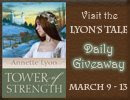
If you have ever read one of Ms. Ahern's novels, you know what to expect from her writing. She is talented with prose, writing stressful scenes frantically and slowing down and enjoying the sweeter moments. If You Could See Me Now is no different. Elizabeth Egan's dysfunctional life story begins with a frantic call to the police to report that her sister has stolen her car. Elizabeth is raising her sister's child, Luke, who's father is unknown and mother is a flighty alcoholic. Her nephew's nanny is away on holiday and he has just discovered an imaginary friend. With Elizabeth's sanity hanging by a thread, Ivan enters her life and turns everything she thought she knew on its head.
The creativity and character development in this story moves the reader. Ivan is sweet, naive and funny juxtaposing Elizabeth's sadly strict and complex world. Throughout the book, while Elizabeth is discovering love and joy, Ivan is discovering pain and despair. Not surprisingly for Ms. Ahern, the ending is bittersweet and I cried. As an author, she seems to feel that giving a perfect happy ending is tantamount to betrayal of her art. Thus, when reading, make sure to keep a few tissues near at hand.
The story moves quickly through the beginning, but does begin to drag toward the middle. While the story is not long, it does feel fairly complex in the middle and I found myself wishing I could find a synopsis online and skip reading the end. I knew it wasn't going to end well for our two little lovebirds. But it does bring up the issues of loving someone enough to let them go, opening your mind to new ideas, and accepting yourself and your issues as you are without punishing yourself for your faults and failures.
If I could do it again, I would probably read a different book, but this was a good break for me from my typical fairy tales and happily ever afters. Sometimes it is important to remember that everything is a story, even if it doesn't turn out exactly the way you wish it would. Sometimes, the greatest blessings are the ones we don't think of as blessings at all.




